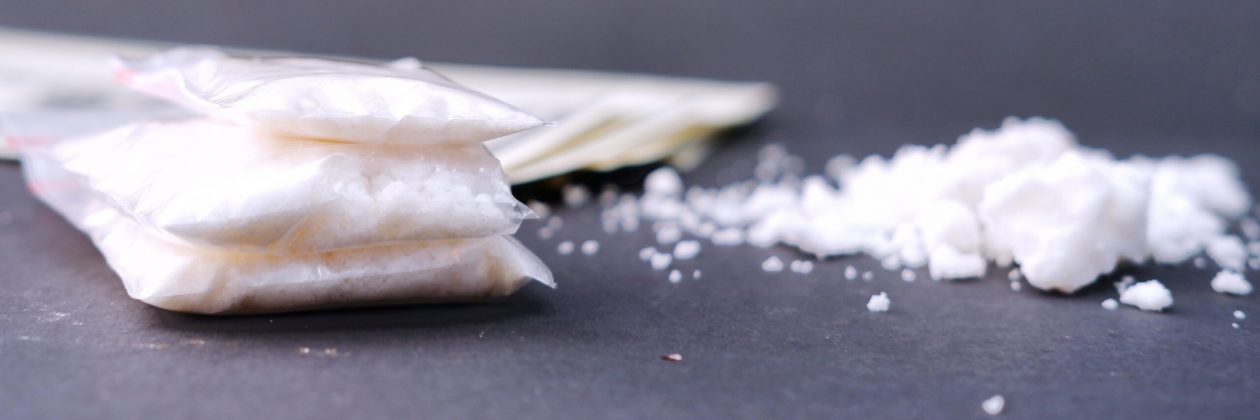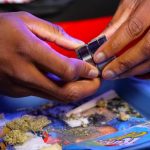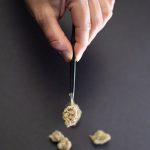Prague, the capital city of the Czech Republic, has a reputation for having a relatively relaxed attitude towards drugs. While drug use is not entirely legal, the city’s approach to drug policy has been more lenient compared to other European countries. In this article, we will explore how Prague’s drug scene has managed to maintain its freedom and what factors contribute to its uniqueness.
History of Drug Policy in Prague
The Czech Republic has a long history of progressive drug policies. In the 1990s, the country began to shift its focus from punishment to treatment and harm reduction. This approach has been reflected in Prague’s drug scene, where users are more likely to be offered help and support rather than face criminal charges.
Current State of Drug Use in Prague
According to recent studies, drug use in Prague is relatively high compared to other European cities. However, the city’s approach to drug policy has helped to reduce the number of drug-related deaths and infections. The use of needles and other equipment is widespread, and many users have access to clean and safe injecting facilities.
Factors Contributing to Prague’s Unshackled Drug Scene
Several factors contribute to Prague’s unique approach to drug policy. These include:
- Progressive government policies: The Czech Republic’s government has been supportive of harm reduction strategies and has implemented policies aimed at reducing the risks associated with drug use.
- Strong civil society: Prague has a vibrant and active civil society, with many organizations working to provide support and services to drug users.
- Access to healthcare: The city’s healthcare system provides universal access to treatment and care, including services specifically tailored to drug users.
Challenges and Controversies
Despite its progressive approach, Prague’s drug scene is not without challenges and controversies; Some critics argue that the city’s lenient policies have contributed to an increase in drug use and related problems. Others point to the need for more resources and support to address the root causes of addiction.
The Role of NGOs in Prague’s Drug Scene
Non-governmental organizations (NGOs) play a crucial role in Prague’s drug scene, providing a range of services and support to drug users. These organizations, such as the Drop-In center, offer needle exchange programs, counseling, and other forms of assistance. They also work to raise awareness about the risks associated with drug use and promote harm reduction strategies.
Harm Reduction Strategies
Prague’s approach to drug policy is centered around harm reduction, which aims to reduce the negative consequences of drug use rather than simply punishing users. This approach includes a range of strategies, such as:
- Needle exchange programs: These programs provide users with clean needles and other equipment, reducing the risk of infection and disease transmission.
- Methadone treatment: Methadone is a medication used to treat opioid addiction, and it is widely available in Prague.
- Safe injecting facilities: These facilities provide a safe and hygienic environment for users to inject drugs, reducing the risk of overdose and other complications.
The Impact of Decriminalization
In 2010, the Czech Republic decriminalized the possession of small amounts of drugs, including marijuana, cocaine, and heroin. This move has had a significant impact on Prague’s drug scene, with many users no longer fearing arrest and prosecution. However, it has also raised concerns about the potential for increased drug use and related problems.
Law Enforcement and Drug Policy
Law enforcement in Prague has a unique approach to drug policy, with a focus on targeting dealers and producers rather than users. This approach has helped to reduce the number of users being arrested and prosecuted, and has instead directed resources towards addressing the root causes of addiction.
International Cooperation and Drug Policy
Prague’s approach to drug policy has also been influenced by international cooperation and agreements. The city has worked closely with other European cities and countries to share best practices and develop effective strategies for addressing drug use and related problems. This cooperation has helped to promote a more comprehensive and evidence-based approach to drug policy.
Prague’s Unique Approach to Drug Education
Prague’s approach to drug education is also noteworthy. The city has implemented a range of programs aimed at educating young people about the risks and consequences of drug use. These programs are often led by NGOs and community organizations, and they focus on providing accurate and unbiased information about drugs.
The Role of Peer Education
Peer education plays a significant role in Prague’s drug education efforts. Trained peer educators work with young people to provide them with information and support, and to encourage them to make informed decisions about drug use. This approach has been shown to be highly effective, as young people are often more likely to listen to and trust their peers than adults.
Addressing the Root Causes of Addiction
Prague’s approach to drug policy also recognizes the importance of addressing the root causes of addiction. The city has implemented a range of programs aimed at addressing poverty, unemployment, and other social and economic issues that can contribute to drug use. These programs include job training and placement services, counseling and therapy, and other forms of support.
International Recognition
Prague’s approach to drug policy has received international recognition. The city has been praised by organizations such as the United Nations and the European Union for its innovative and effective approach to addressing drug use and related problems. Prague has also been recognized as a model for other cities and countries to follow, and its approach has been studied and replicated around the world.
Challenges and Future Directions
Despite its successes, Prague’s approach to drug policy is not without challenges. The city continues to face issues such as drug-related crime and public disorder, and there are ongoing debates about the effectiveness of its approach. However, Prague remains committed to its harm reduction approach, and it continues to innovate and adapt its policies to meet the changing needs of its citizens.
As the world continues to grapple with the issues of drug use and addiction, Prague’s approach offers a valuable example of how to address these problems in a compassionate and effective way. By prioritizing harm reduction, addressing the root causes of addiction, and providing support and services to those in need, Prague has created a truly innovative and successful approach to drug policy.
It is hoped that other cities and countries will follow Prague’s lead, and that its approach will continue to evolve and improve over time. By working together and sharing knowledge and best practices, it is possible to create a world where drug use is no longer a major public health problem, and where those who struggle with addiction can receive the support and care they need to live healthy and fulfilling lives.






The article raises some excellent points about the importance of access to healthcare in reducing the risks associated with drug use. It\
I found this article to be incredibly insightful and informative. The author does a great job of highlighting the unique aspects of Prague\
As someone who has visited Prague several times, I can attest to the city\
I appreciate how the article acknowledges the challenges and controversies surrounding Prague\